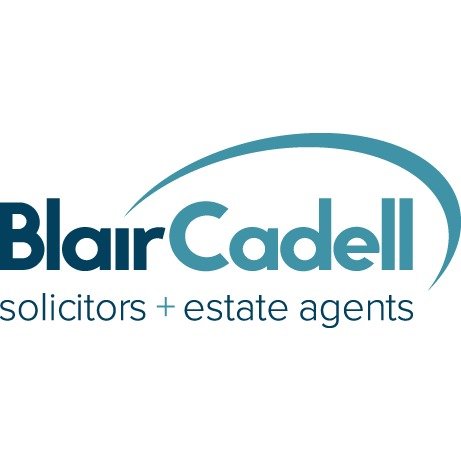Best Private Client Lawyers in Edinburgh
Share your needs with us, get contacted by law firms.
Free. Takes 2 min.
List of the best lawyers in Edinburgh, United Kingdom
About Private Client Law in Edinburgh, United Kingdom
Private Client law refers to a broad area of legal services designed to help individuals manage their personal affairs, assets, and wealth. In Edinburgh, United Kingdom, Private Client services typically cover matters such as wills, trusts, inheritance, estate planning, tax planning, powers of attorney, guardianship, and succession. These services are essential for anyone aiming to protect their wealth, provide for loved ones, and ensure their wishes are respected both during their lifetime and after their death. Edinburgh’s unique legal traditions and Scots law influence private client matters, making it advisable to seek expert legal advice tailored to the region.
Why You May Need a Lawyer
There are several situations where seeking help from a Private Client lawyer in Edinburgh can be invaluable, including:
- Preparing or updating a will: To ensure your assets are distributed according to your wishes, reduce inheritance tax liabilities, and avoid disputes among beneficiaries.
- Estate administration: When a loved one passes away, dealing with their estate can be complex. A lawyer can help you navigate probate and executry processes.
- Setting up trusts: Trusts can help manage assets, provide for vulnerable beneficiaries, or plan for future generations.
- Inheritance tax planning: Minimising tax exposure legally can protect more of your estate for your beneficiaries.
- Creating powers of attorney: Assigning someone you trust to manage your affairs if you lose capacity is vital for peace of mind.
- Guardianship and incapacity: Legal help is needed if a loved one loses capacity without a power of attorney in place.
- International assets: If you own property or assets outside Scotland, legal advice ensures compliance with different jurisdictions.
- Family business succession: Planning for the transfer of business ownership and assets often requires complex advice.
Local Laws Overview
Private Client law in Edinburgh is shaped by Scots law, which has some differences from the law in England and Wales. Notable aspects include:
- Legal rights: Under Scots law, certain close relatives (children and spouses) have "legal rights" to a share of an estate, regardless of what is written in a will.
- Confirmation: This is the Scottish term for probate. Executors must obtain confirmation to administer an estate.
- Inheritance tax: The UK-wide tax applies, but some assets may qualify for reliefs or exemptions. Scottish law also affects how assets are valued and distributed.
- Trusts: Scots law governs how trusts are set up and managed, differing in some respects from other UK jurisdictions.
- Powers of Attorney and Guardianship: Legal documents governing these matters are specific to Scottish law, with unique processes for registration and enforcement.
- Succession law: If someone dies "intestate" (without a will), Scots law determines who inherits the estate, which differs from other parts of the UK.
Frequently Asked Questions
What is a will and why is it important?
A will is a legal document that sets out how you would like your assets to be distributed after your death. It can also appoint executors to administer your estate and guardians for minor children. Without a will, your estate will be distributed according to Scots law, which may not reflect your wishes.
What happens if someone dies without a will in Edinburgh?
If a person dies intestate (without a will) in Edinburgh, Scottish law decides who inherits their estate. Certain family members have priority, but the process can be complicated and may not align with your intentions. Legal advice is essential in these cases.
Who can act as an executor in Scotland?
Anyone over 16 years old can be appointed as an executor in a will. Multiple executors can act jointly, and professional advisers, such as solicitors, can also be appointed. An executor is responsible for administering the estate.
What are legal rights in Scots law?
Legal rights are entitlements given by Scots law to certain close relatives - namely, spouses/civil partners and children - to claim a portion of a deceased person's estate, regardless of what the will says.
How does inheritance tax work in Edinburgh?
Inheritance tax is a UK-wide tax on estates above a certain threshold. There are various allowances, exemptions, and reliefs that may apply. Estate planning can reduce tax liability, and professional advice is recommended to ensure compliance.
What is a power of attorney and when should I set one up?
A power of attorney is a legal document authorising someone to make decisions on your behalf if you become unable to do so. It is advisable to set one up while you are still capable, as it offers security and peace of mind.
Can I set up a trust in Scotland and why would I do so?
Yes, you can set up different types of trusts in Scotland for purposes such as asset protection, tax planning, or supporting vulnerable beneficiaries. Trusts can be complex so legal advice is important when setting them up.
How long does probate (confirmation) take in Scotland?
The time required to obtain confirmation varies depending on the size and complexity of the estate, whether there is a will, and how easily assets can be identified and valued. Straightforward cases may complete in a few months, but more complex estates can take longer.
What if there is a dispute over a will or inheritance?
Disputes do arise regarding the validity of a will or entitlement to legal rights. An experienced Private Client lawyer can help resolve disputes, whether through negotiation, mediation, or court proceedings if necessary.
Is it possible to challenge a will in Scotland?
Wills can be challenged in Scotland on the grounds of incapacity, undue influence, or if legal rights have not been respected. The process can be complex and requires specialist legal advice.
Additional Resources
For those seeking further information or assistance, the following resources may be helpful:
- Scottish Courts and Tribunals Service: Information on confirmation (probate) and court processes.
- Law Society of Scotland: Directory of solicitors and general guidance on legal issues in Scotland.
- Citizens Advice Scotland: Free and impartial advice on a range of Private Client topics.
- Office of the Public Guardian (Scotland): Guidance and forms for powers of attorney and guardianship.
- HM Revenue and Customs (HMRC): Guidance on inheritance tax, allowances, and exemptions.
Next Steps
If you think you may need legal advice on a Private Client matter in Edinburgh, it is important to consult a solicitor who specialises in Scots law as soon as possible. Here are some suggested next steps:
- Gather relevant information about your assets, family circumstances, and any existing legal documents.
- Write down your questions, concerns, and objectives so you can discuss them clearly with your lawyer.
- Search for a reputable Private Client solicitor in Edinburgh, ideally with experience in the specific area you require help with, such as wills, trusts, tax planning, or executry.
- Schedule a consultation to discuss your needs and receive tailored advice.
- Take notes during your meeting and request clear explanations for any legal jargon or unfamiliar procedures.
- Follow your lawyer’s guidance to complete paperwork, submit applications, or take any further action required to protect your interests.
Experienced legal support is crucial for peace of mind and to ensure your affairs are managed in accordance with your wishes and the law in Edinburgh, United Kingdom.
Lawzana helps you find the best lawyers and law firms in Edinburgh through a curated and pre-screened list of qualified legal professionals. Our platform offers rankings and detailed profiles of attorneys and law firms, allowing you to compare based on practice areas, including Private Client, experience, and client feedback.
Each profile includes a description of the firm's areas of practice, client reviews, team members and partners, year of establishment, spoken languages, office locations, contact information, social media presence, and any published articles or resources. Most firms on our platform speak English and are experienced in both local and international legal matters.
Get a quote from top-rated law firms in Edinburgh, United Kingdom — quickly, securely, and without unnecessary hassle.
Disclaimer:
The information provided on this page is for general informational purposes only and does not constitute legal advice. While we strive to ensure the accuracy and relevance of the content, legal information may change over time, and interpretations of the law can vary. You should always consult with a qualified legal professional for advice specific to your situation.
We disclaim all liability for actions taken or not taken based on the content of this page. If you believe any information is incorrect or outdated, please contact us, and we will review and update it where appropriate.
Browse private client law firms by service in Edinburgh, United Kingdom
Edinburgh, United Kingdom Attorneys in related practice areas.











